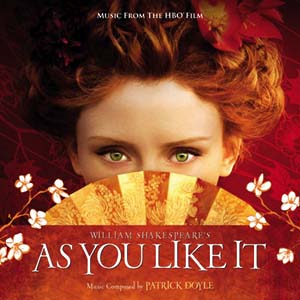Shakespeare’s Romances are truly some of his most mature and compelling works, made all the more relevant and beautiful by a truthful and skilled retelling. The Texas Shakespeare Festival’s Cymbeline, directed by Deb Alley, closed with it’s matinee performance on Saturday, but it’s run certainly did justice to Shakespeare’s epic story and characters. I expected as much; last year’s staging of The Winter’s Tale was miraculous and poignant. In this year’s Romance, the brilliant cut of the script flowed effortlessly and the production managed to lighten up a play that truthfully could be very dark, though I think a bit more of the tragic element would have increased the cathartic experience. With mastery of words the actors embodied the characters and the world of the play, including the two lovers, who showed me a version of Imogen and Posthumus that I did not expect. This production answered some of my questions about Cymbeline, and raised new ones.
You might recall from my reflection on our discussion of Cymbeline that this play secured it’s place at the top of my favorites list early on as we were reading through all of Shakespeare’s plays. Cymbeline is one of Shakespeare’s later, mature works known as the Romances, which encapsulates the best pieces of his prior work and all of his genres in one. It is a romance, a comedy, a tragedy, a history play, and a war play. And I cannot describe my excitement when I learned I would finally get to see it.
Having now witnessed this work brought to life on stage, I understand the challenges that often steer directors away from taking on this epic tale. But I also have seen how well it works! It’s true, Cymbeline is a challenging play to stage. There are many characters and plots and, while things don’t get too complicated to follow along, there are characters we don’t see a whole lot of, most notably the title character Cymbeline and the lover Posthumus. The play is mostly balanced, but I was aware of how long we went without touching base with these two, respectively, and can better understand the challenges this play presents.
This challenge was partially overcome by the brilliant cut of the play. The internal cuts were flawless. I love this play and I barely noticed some of the missing pieces. The Deus ex Machina scene in which Posthumus is visited by the ghosts of his family and the god Jupiter was cut, and not missed. In fact, I felt the play was more grounded than it might otherwise have been without it. The Queen, though evil, did not use magic in her schemes, but rather earthly potions and manipulations. So with the cutting of the supernatural scene we were left with just human beings, Shakespeare’s favorite subject.

Emily Brown as Imogen and Tim Heller as Posthumus in the Texas Shakespeare Festival production of Cymbeline
The two human beings at the center of the play are also two of my favorite Shakespeare characters. When analyzing the play, I viewed Posthumus and Imogen as two lovers who start off rather immature; their love is passionate, but rebellious. In reading the play I saw them grow and develop as betrayal, loss, and war changed them, until they were reunited having grown stronger as individuals and coming to fully understand what they meant to each other.
In the TSF production, both characters came off as mature at the beginning. Passionate and impulsive, but I didn’t see the naivety I expected to, and I was left wondering where these characters had to go from here? No matter where one begins, betrayal, loss, and war will always be transformative, and I enjoyed watching these mature, strong versions of the characters grow. Posthumus started out so sure about his love’s loyalty and chastity, and through a journey during which he was broken and guilt-striven, he ended up being sure about his love for Imogen and her innocence all over gain, but in a new way. Imogen who defied her father and showed strength against adversity proves to be clever, gentle, forgiving and yet firm, defying her husband in the end:
“Why did you throw your wedded lady from you?
Think that you are upon a rock, and now
Throw me again.”
I was fascinated by this unexpected portrayal of Posthumus and Imogen, and I loved it! The characters clearly do not have to start out in a naive or immature place to transform and mature tremendously.

Tim Heller as Posthumus and Thom Miller as Iachimo in the 2014 Texas Shakespeare Festival production of Cymbeline
The actors were simply brilliant. Andi Dema, who portrayed Cloten had a mastery of the words and used every single one of them to highlight his characters foolishness and nail unforeseen comedic moments. Emily Brown as Imogen also used Shakespeare’s words wonderfully, had great energy, and embodied the strength of one of Shakespeare’s strongest female characters. Tim Heller as Posthumus was passionate in his love, hurt, and hate (I wish he had had his moment of forgiveness at the end. It was a shame that his lines forgiving Iachimo, which in turn inspire Cymbeline to forgive his enemies, was cut). Thom Miller was an enjoyable Iachimo to watch, well motivated, clear in his decisions, and poignant in the last scene. Micah Goodding was endearing as Pissanio, loyal and true.
All of the actors did a marvelous job not only with their own characters, but also in coming together to lighten up the story. Personally, I hope one day to see a production of Cymbeline that has a bit more of the tragic element, and takes us to those deeper, darker places, so that the light is more refreshing when it returns. Cloten’s foolishness led his scene plotting Posthumus’ murder and Imogen’s rape to read as a dim-witted man forming a stupid and clumsy plan. At first, I was uncomfortable with the audience’s laughter during this scene, but the actor led us through Cloten’s thought process and seemed to show us that there was no real danger to fear from him, giving us freedom to laugh at his scheme. The murder and beheading of Cloten also prompted some laughter when a dummy body and bloody head was revealed. I’m not sure how the silly aspects of this scene could be avoided entirely, and this production wasn’t trying to hide those elements, but I struggled to experience the reality of what was happening and immerse myself in the danger of the story when the comedic rather than tragic elements were highlighted in these moments.
I loved this production, don’t get me wrong! It was perfect for the vision that was being put forth. I just look forward to seeing other versions of Cymbeline that have different takes as well, to compare and to enjoy. After all, that’s part of the brilliance of Shakespeare’s works. There are so many ways to bring his stories to life, and each production brings something new. I am saddened that Cymbeline is a play not often embraced by Shakespeare companies, but I am certainly glad the Texas Shakespeare Festival was bold enough to produce it this year. I had high expectations seeing my favorite Shakespeare play on stage for the first time, and I was thrilled by the production I witnessed at TSF!








